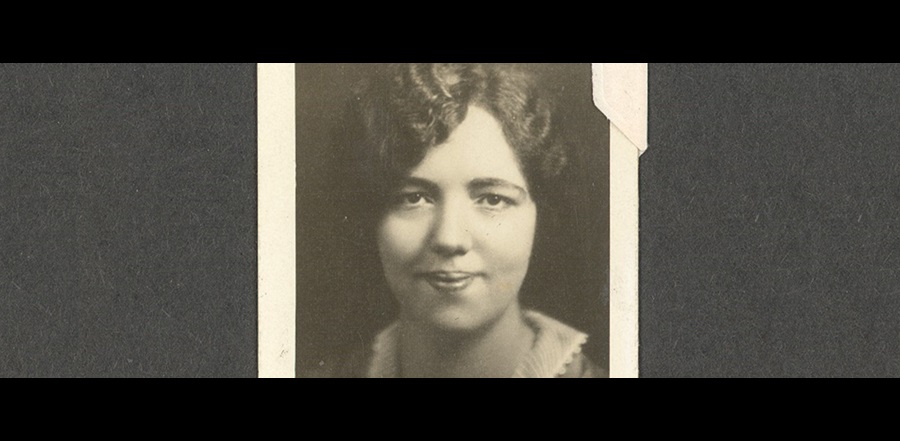Lula Bell Hough: Assemblies of God Missionary to China and Japanese P.O.W.

This Week in AG History — April 21, 1934
By Darrin J. Rodgers
Originally published on AG-News, 20 April 2023
Lula Bell Hough (1906-2002) did not take the easy road in life. She sensed God’s call to ministry and was credentialed as an Assemblies of God missionary at the age of 23. She left her comfortable life in America and devoted herself to sharing the gospel in China, where she spent the next 45 years. As an unmarried woman in her 20s and 30s, she endured great deprivation and the ravages of war.
Hough’s greatest challenge on the mission field came during World War II, when she spent seven and one-half months as a Japanese prisoner of war. She did not know whether she would survive the ordeal, which began in December 1941. She later recalled that soldiers kept placing their bayonets to her throat, threatening to kill her. Women around her were raped, and thousands died from starvation. Some resorted to eating human flesh to survive. For the first two weeks of her captivity, she lived on nothing but wheat that was wormy and moldy. After that, she was given small food rations. The food was enough to keep her alive, but she lost 38 pounds in about six months. She was freed in a prisoner exchange — American prisoners were swapped for Japanese prisoners of war.
Living in difficult circumstances for over a decade in China had prepared Hough for the hardship of the prisoner-of-war camp. Hough sent regular letters to her supporters back in the United States. One of these letters, published in the April 21, 1934, issue of the Pentecostal Evangel, described a trip to areas in south China where there were no Christians.
Hough humorously described having to share her accommodations with loud farm animals:
“When we reached the inn we were soaking wet and cold. After warming ourselves by an open fire in the center of the room we retired to our room. Cobwebs were hanging everywhere, and one corner was occupied by geese, which entertained us with special music at intervals during the night. Our room was really a hall where people had to pass through, and our bed was only a board. The next night we spent in Sha Hoh, and were thankful to find no geese in our room, but soon discovered there were pigs in the room just below us.”
New Christians often suffered for their faith. Hough described several instances of persecution in heart-wrenching detail. She wrote that one 18-year-old woman was beaten by her husband because of her newfound faith. Her mother-in-law scratched the young woman’s face until there were “deep sores and scars.” The villagers joined in the persecution, encouraging the family to sell the young wife into slavery if she didn’t recant her faith in Christ.
Why did Hough and other early missionaries leave their homes in the West and endure difficulties? They were motivated to be faithful to Christ in fulfilling the Great Commission.
Hough explained, “In some of these villages we were the first foreigners the villagers had ever seen, and in many, the first to preach the gospel. God has promised that His Word shall not return unto Him void, so we believe that if we are faithful in proclaiming the gospel, He will be faithful in drawing souls unto himself.”
Lula Bell Hough’s life illustrates the early Pentecostal worldview that encouraged full consecration to Christ and His mission. Hough and countless other Assemblies of God missionaries spent their lives sharing the gospel, at great personal cost, and helped to lay the foundation for a worldwide Fellowship that now numbers over 70 million adherents.
Read the entire article by Lula Bell Hough, “Missionary Travels, S. China,” on pages 8-9 of the April 21, 1934, issue of the Pentecostal Evangel.
Also featured in this issue:
• “A Revelation of the Love of God,” by Kate Knight
• “Spiritual Awaking Follows Earthquake,” by Hilda Wagenknecht
And many more!
Click here to read this issue now.
Pentecostal Evangel archived editions courtesy of the Flower Pentecostal Heritage Center.
Do you have Pentecostal historical materials that should be preserved? Please consider depositing these materials at the Flower Pentecostal Heritage Center (FPHC). The FPHC, located in the Assemblies of God national offices, is the largest Pentecostal archive in the world. We would like to preserve and make your treasures accessible to those who write the history books.
Flower Pentecostal Heritage Center
1445 North Boonville Avenue
Springfield, Missouri 65802 USA
Phone: 417.862.1447 ext. 4400
Toll Free: 877.840.5200
Email: [email protected]
Website: www.iFPHC.org








Leave a Reply